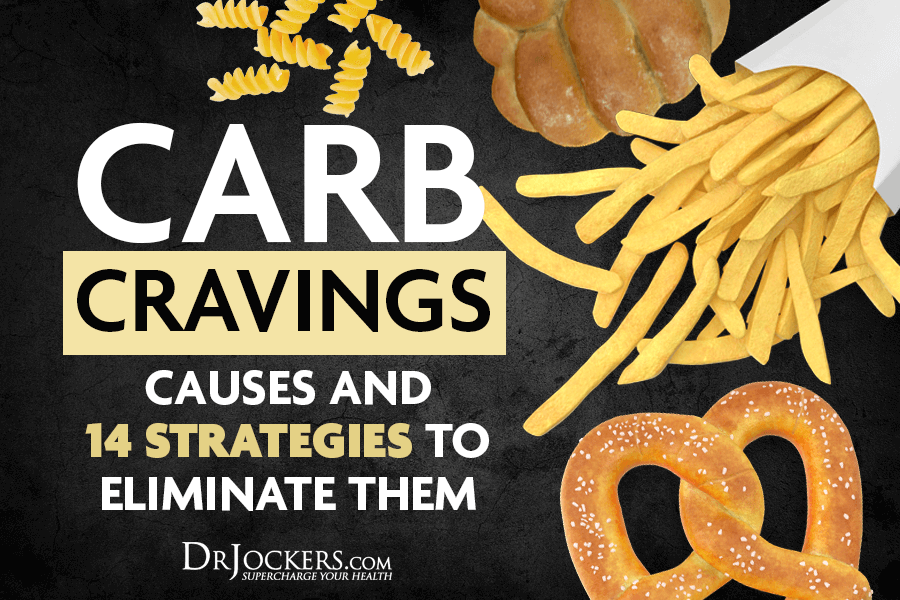 Carb Cravings: Causes and 14 Strategies to Eliminate Them
Carb Cravings: Causes and 14 Strategies to Eliminate Them
It has become pretty apparent that most people in today’s society eat way too many carbs. Our heavy reliance on carbs and sugar to sustain us has led to a massive increase in chronic disease. Things like diabetes, heart disease, cancer, and obesity can all be tied back to chronic blood sugar fluctuations on some level. It is these blood sugar fluctuations that so many people deal with that lead to incessant carb cravings.
Reducing your carb intake and increasing healthy fats is the first step to improving blood sugar. Eventually adopting more of a ketogenic lifestyle can have tremendous benefits for many people. The problem is that many people face carb cravings during this transition period which sets them back. This article is going to dive into common causes and solutions to beat these carb cravings for good.
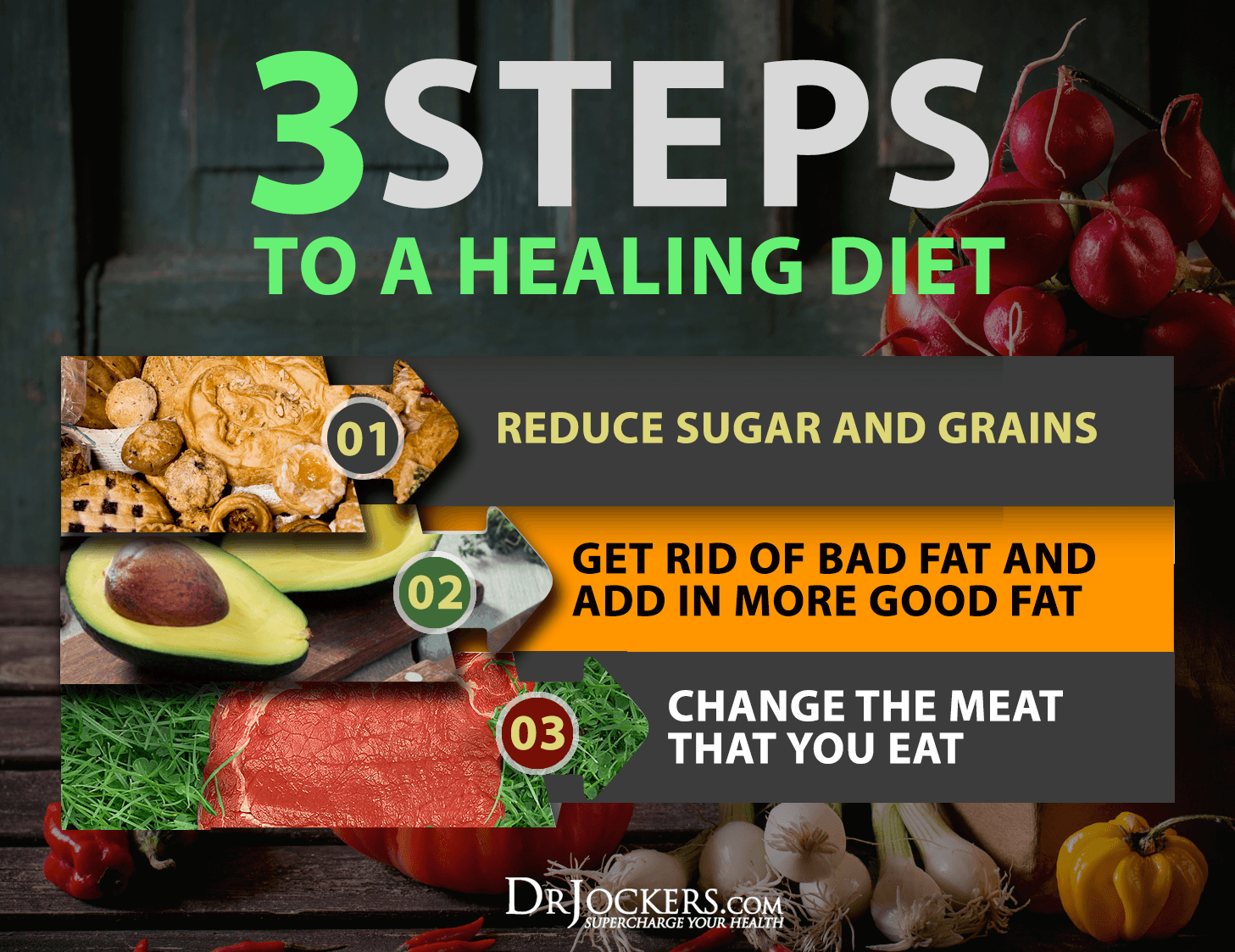
Common Causes of Carb Cravings
Before we discuss strategies to eliminate carb cravings, it helps to know why they occur in the first place. In many cases, your cravings are not necessarily your fault. They aren’t due to a lack of will power or a weak mindset, but instead they are often due to chronic infections, stress and nutrient deficiencies.
Below is not an exhaustive list, but it does include the most common reasons in my experience. After this, we will discuss simple strategies to limit or overcome them completely.
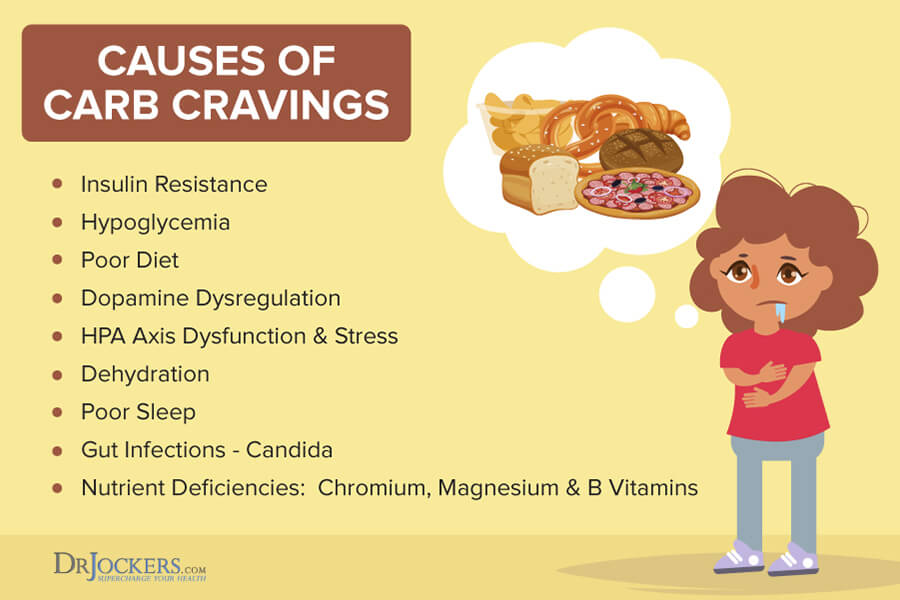
Insulin Resistance
Insulin is the signaling molecule that allows sugar to enter cells. When we eat carbs or sugar, they are converted into glucose in the liver and sent into the blood. Once in the blood, it is insulin’s job to make sure that sugar gets into the cells. Insulin resistance is when cells become numb to the signals of insulin and sugar is not able to enter.
When this happens, cells do not have the substrate they need to make energy. This results in a signal being sent to the brain to eat more sugar. Unfortunately, when more carbs are consumed this just makes matters worse. This leads to a cycle of overeating due to carb cravings and low energy. To fix this, we either need to get more sugar into the cells or switch energy sources (more on that later).
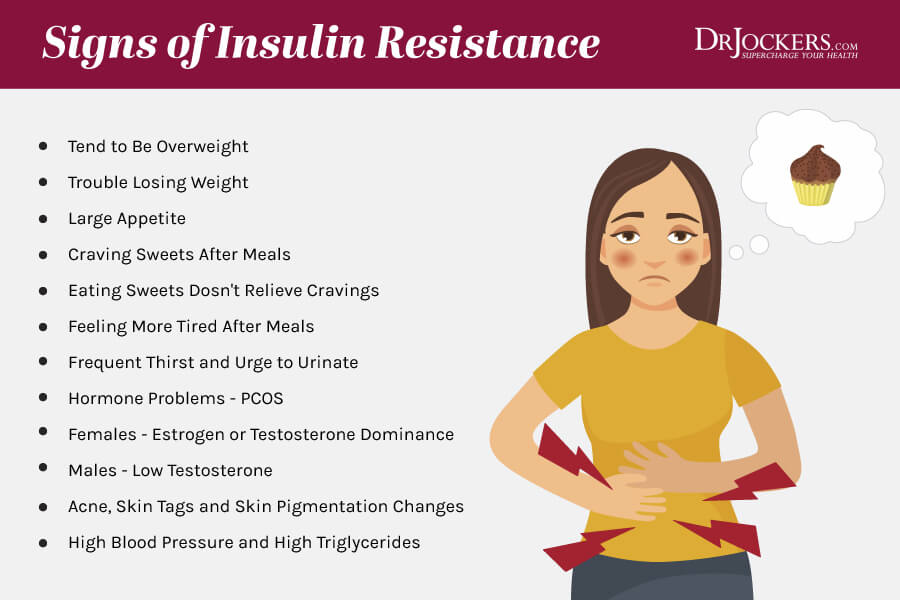
Hypoglycemia
On the opposite end of insulin resistance, we have hypoglycemia. Hypoglycemia is when blood sugar becomes very low. Oftentimes this is due to something called reactive hypoglycemia. This often occurs when blood sugar spikes rapidly, followed by a rapid decline below the body’s baseline. When this occurs, a stress response is set off in the brain to seek out food – oftentimes this is a massive sugar craving.
Other symptoms of hypoglycemia are low energy, poor mood, anxiety, brain fog, and sudden hunger. These all typically occur within a few hours following a meal.
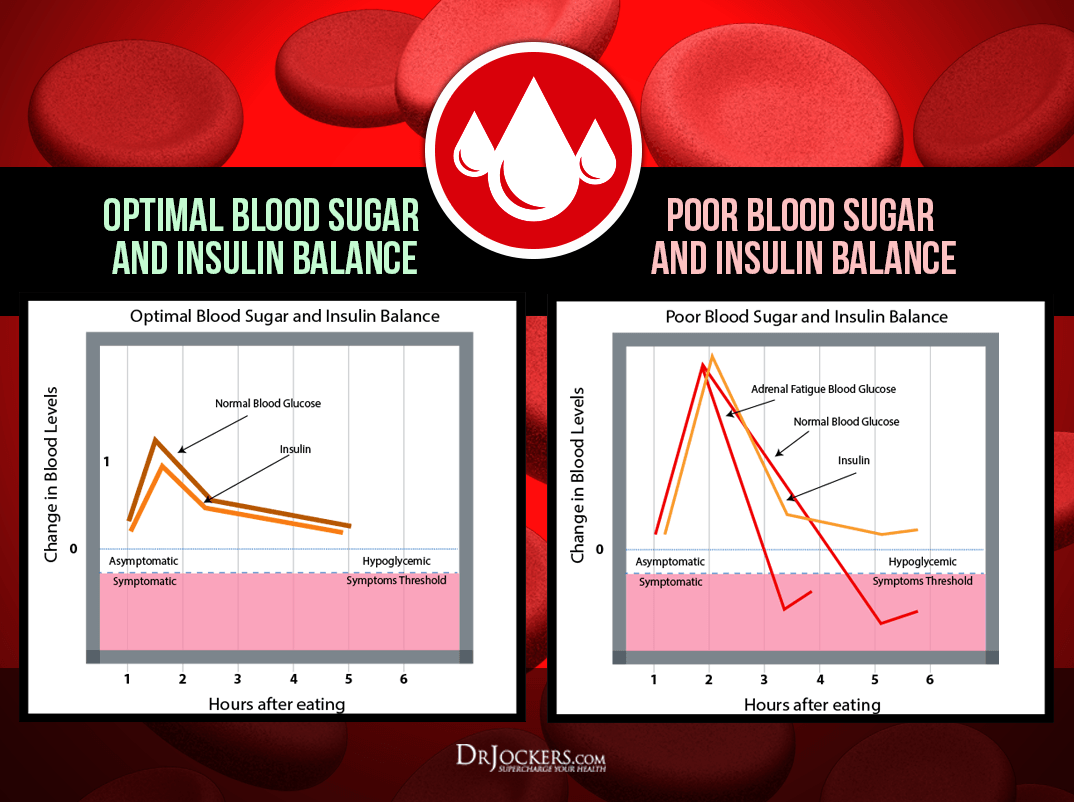
Poor Diet
Consuming a lot of high-glycemic foods like processed sugars, breads, pasta, fruits, and grains can all cause rapid spiking of blood sugar. It is these kinds of foods that promote the blood sugar patterns that resemble reactive hypoglycemia mentioned above.
I would make that case that just about anyone would benefit from cutting sugar and processed carbs from their diet. Ultimately, you know and understand this and that is why you are reading this far into the article!
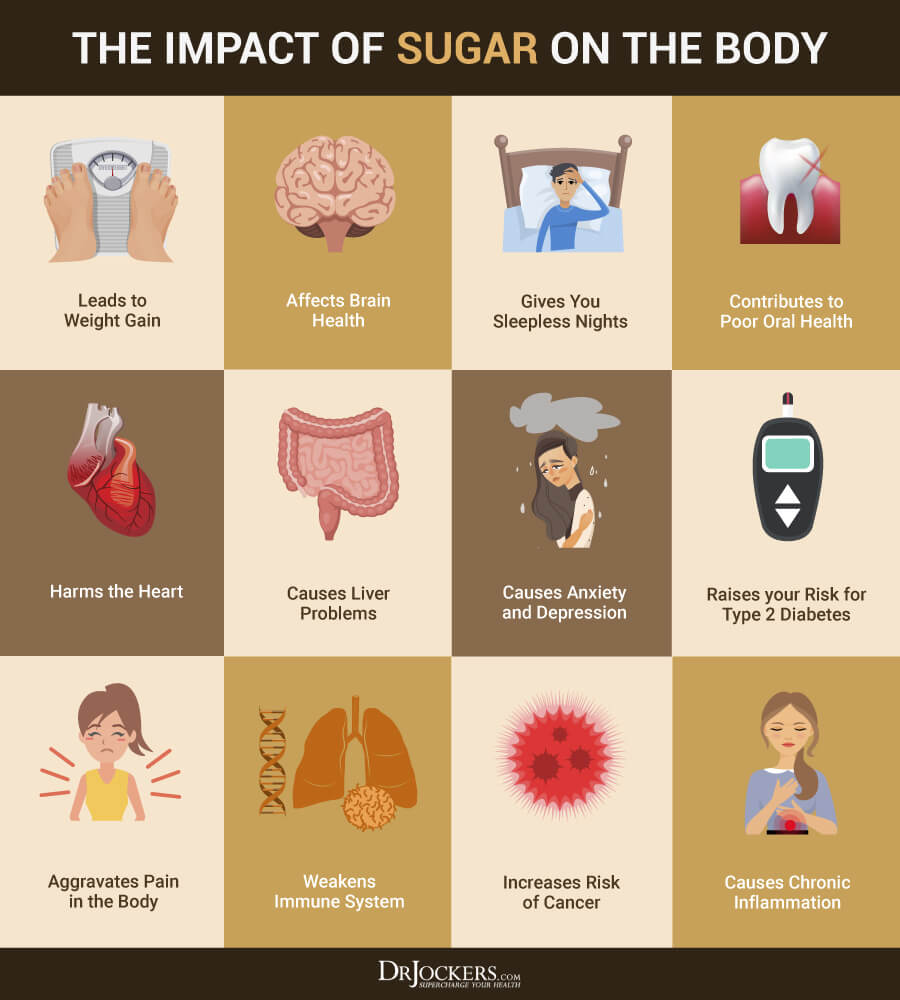
Dopamine Dysregulation
Dopamine is a neurotransmitter in the brain that seems to become higher when we achieve a goal. This molecule is essentially a motivation molecule that keeps us doing things that are good for us. When we artificially stimulate dopamine with sugar, caffeine, social media overuse, and other things, this can lead to sugar cravings.
The key here is to not let yourself get out of control with stimulating your dopamine pathways artificially. Try to refrain from procrastinating from bigger tasks. Also, going outside and getting some sunlight throughout the day can be a great way to raise dopamine without causing any negative effects. Regular exercise and prioritizing sleep will help you heal your dopamine receptors and feel much better.
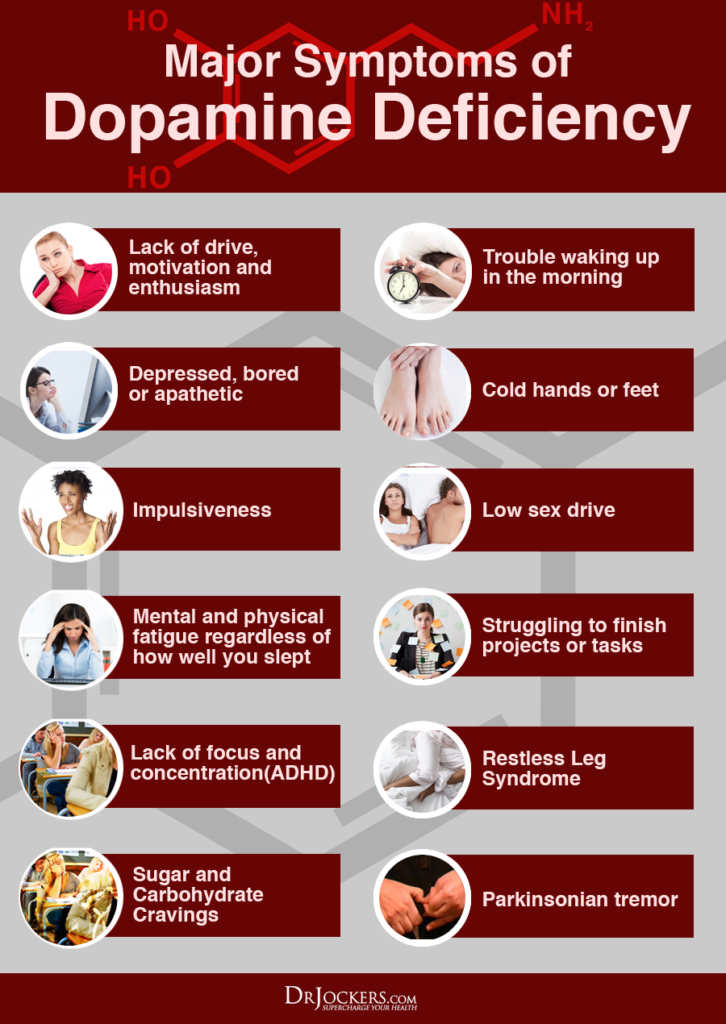
HPA Axis Dysfunction & Stress
The HPA axis is what regulates the body’s response to stress. It is made up of the hypothalamus, pituitary, and adrenal glands. This axis constantly monitors the body and alters blood sugar and hydration status depending on stress signals.
When stress is detected, the hypothalamus and pituitary signal for the release of cortisol from the adrenal glands. Cortisol quickly increases blood sugar for use as fuel. This is a great thing in acute stress scenarios. When this occurs several times a day, this can lead to blood sugar dysregulation and sugar cravings.
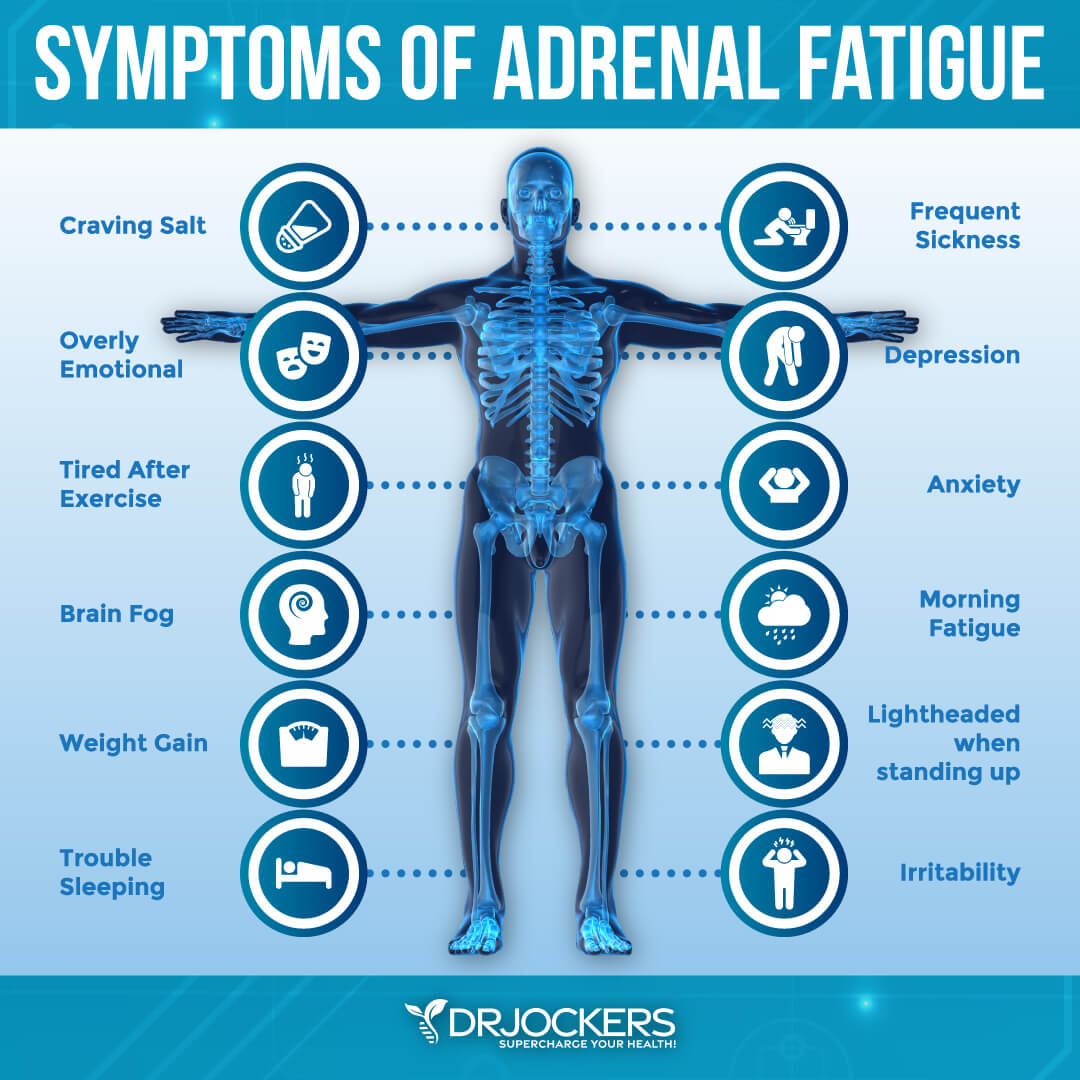
Dehydration
Carb cravings often occur as a result of poor hydration. Although this may seem unrelated, they are actually closely tied. We need adequate amounts of water for the liver to convert glycogen into glucose to maintain steady blood sugar.
When hydration is low, blood sugar may become unstable, resulting in carb cravings. Consuming adequate amounts of both water and electrolytes is vital to maintaining adequate hydration in tissues.

Poor Sleep
Poor sleep or night-shift work has been consistently linked with poor blood sugar balance and other metabolic disorders. In fact, consistent sleep disruption has been shown to increase risk of diabetes, obesity, and even some cancers (1,2). Because poor sleep has an effect on blood sugar regulation, it is highly likely that getting poor sleep would result in higher instances of carb cravings (3).
Melatonin, known by most as the sleep molecule produced at nighttime, actually plays another important role in health. Melatonin is a powerful antioxidant that protects cells from damage and is being investigated as a potential cancer therapy (4).
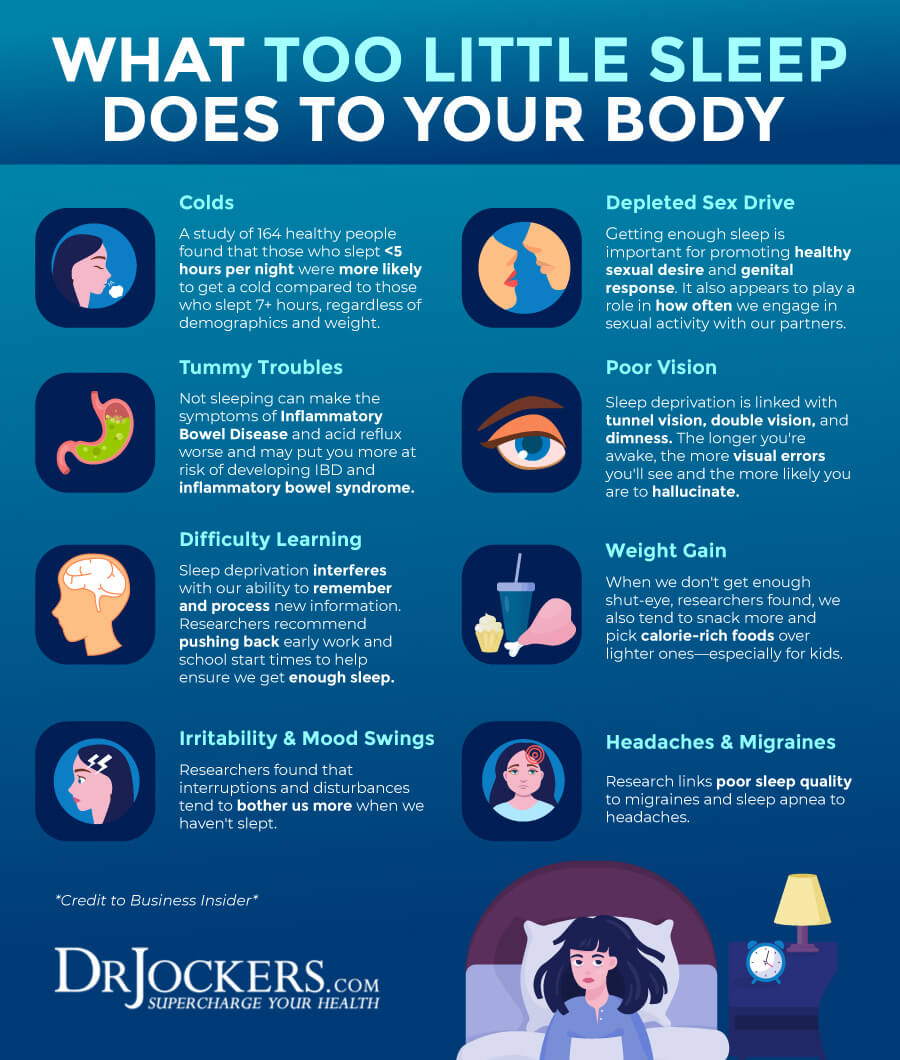
Gut Infections
Another often overlooked source of carb cravings could be infections going on in the gut. For example, one such infection could be an overgrowth of a yeast named candida. This particular strain of yeast thrives on sugar and may even have an influence over dietary cravings.
Signs of candida infection include oral thrush (white film on tongue), chronic brain fog, sugar cravings, and much more. Other gut infections like parasites or opportunistic bacteria can also play a role in cravings. We will discuss one of the best ways to discover gut infections later in this article.
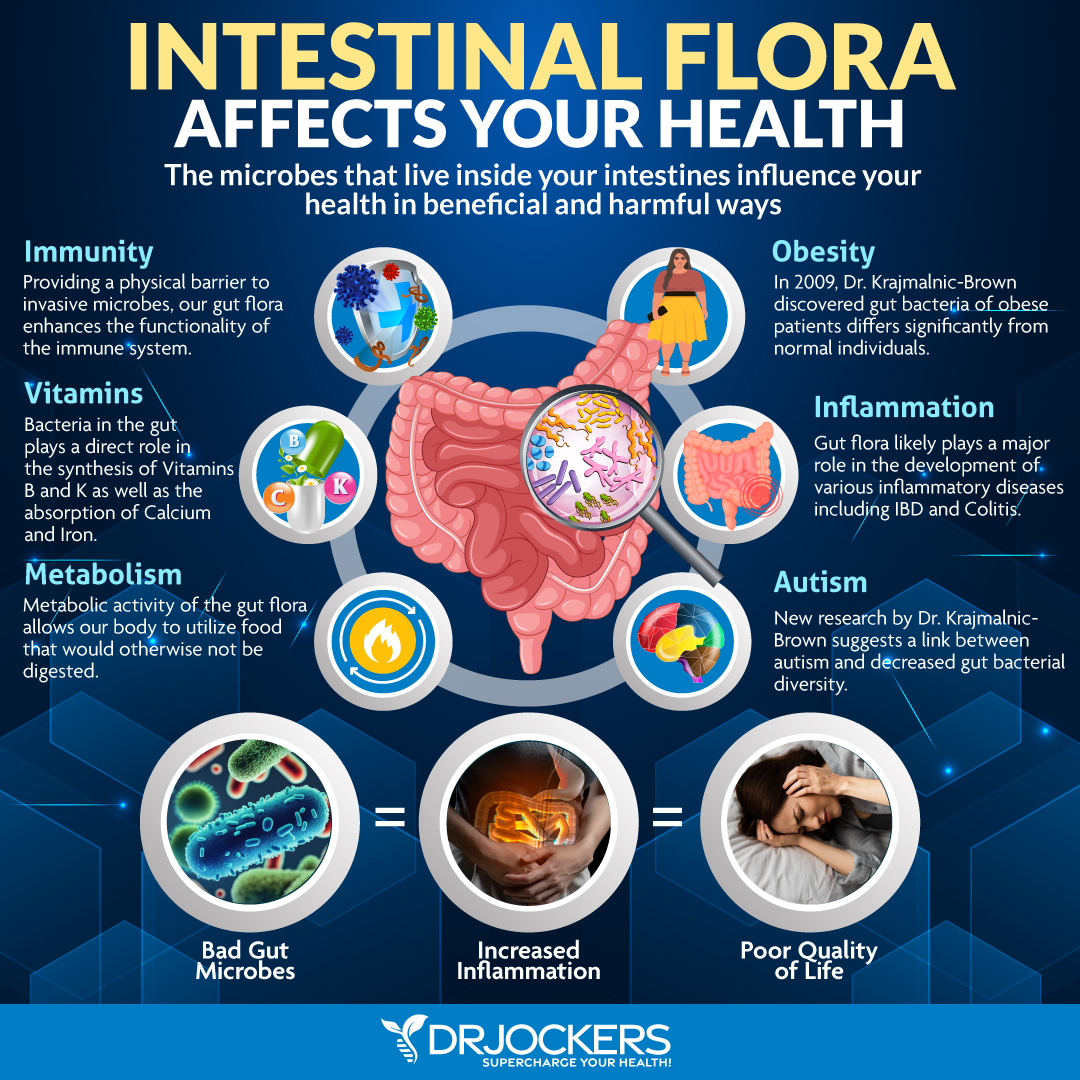
Nutrient Deficiencies (Magnesium, Chromium, B-Vitamins)
Finally, another commonly overlooked reason for sugar cravings is low levels of vital nutrients in the body. For example:
Chromium is a trace mineral that is only required in small amounts. Low levels of chromium can cause glucose intolerance which is often accompanied by anxiety and carb cravings (5). Consequently, supplementing with chromium may assist with glucose metabolism when taken with a higher carb meal.
Magnesium is often low in those with poor blood sugar control. When blood sugar is elevated, excess magnesium is often lost through the urine. Considering magnesium is involved in over 300 processes in the body, including energy production, ensuring you get enough is vital.
B-Vitamins are directly involved with glucose metabolism. They serve as cofactors in several enzymatic processes in which sugar is converted into ATP. Without adequate B-Vitamins, energy production is inhibited and cravings may result.
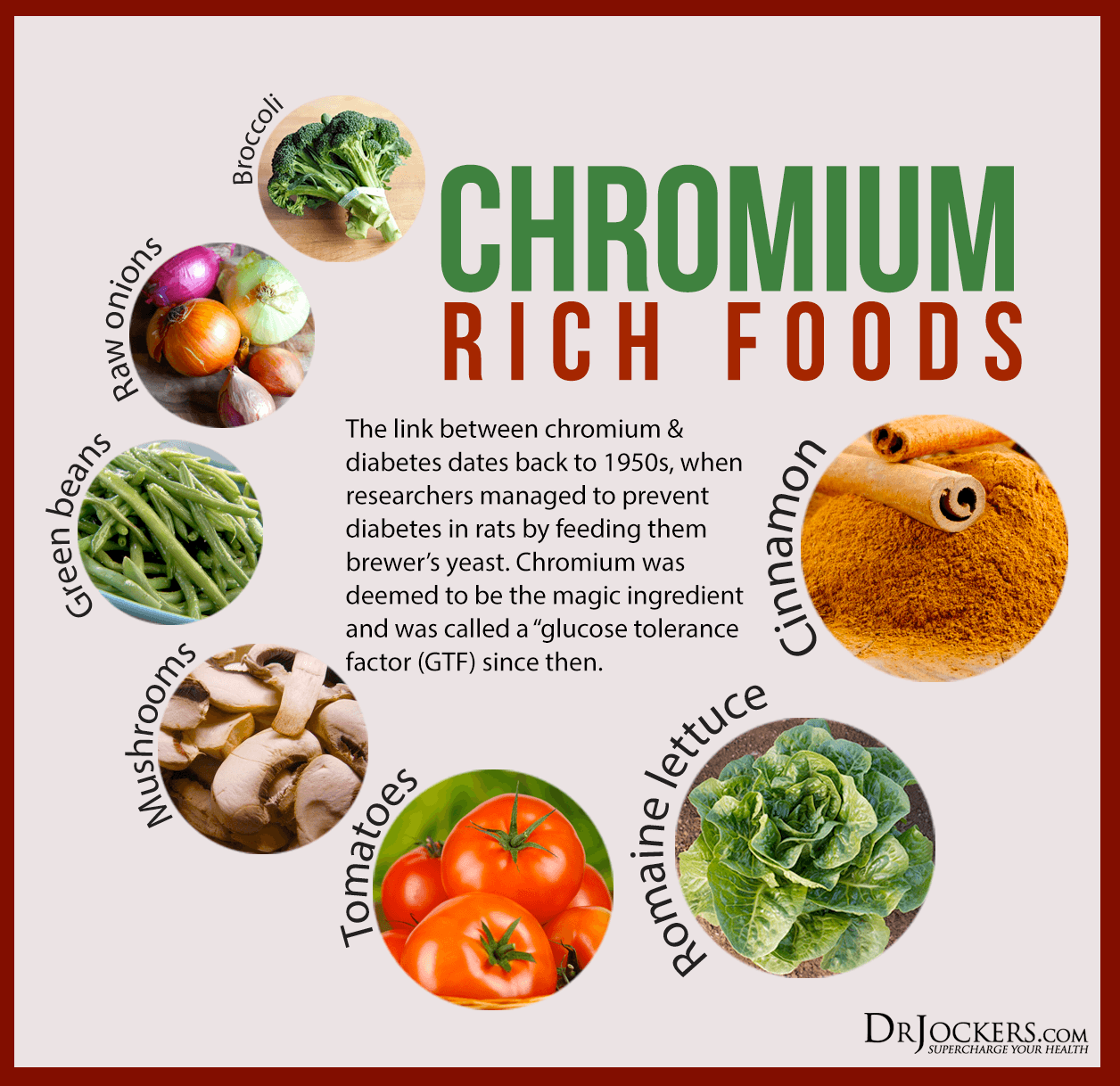
14 Strategies to Beat Carb Cravings
The top factors commonly involved with carb cravings include insulin resistance, hypoglycemia, poor diet, HPA Axis dysfunction, dehydration, poor sleep, candida overgrowth, and specific nutrient deficiencies.
Now that we have discussed these mechanisms, we can decide the best action steps to help beat carb cravings for good. Below is a great list to focus on to overcome these carb cravings for good!
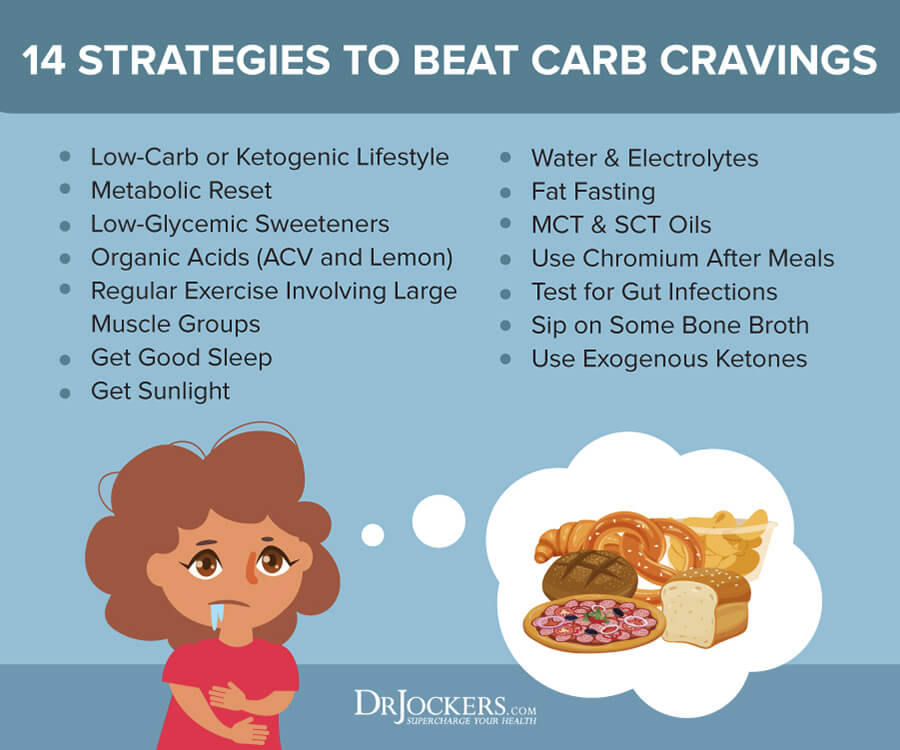
Low-Carb or Ketogenic Lifestyle
One of the most efficient strategies for reducing carb cravings in most people is to stop relying on carbs for energy. This can be done by lowering carb intake and increasing the intake of healthy fats. When carbs are reduced low enough and replaced by ample healthy fats, the body can actually be taught to burn fat instead of sugar for energy.
Once this happens, you are no longer riding the blood sugar roller coaster. At this point, your body will be able to convert fats into something called ketones. These ketones are a powerful energy source that are much more stable than sugar and provide much more energy.
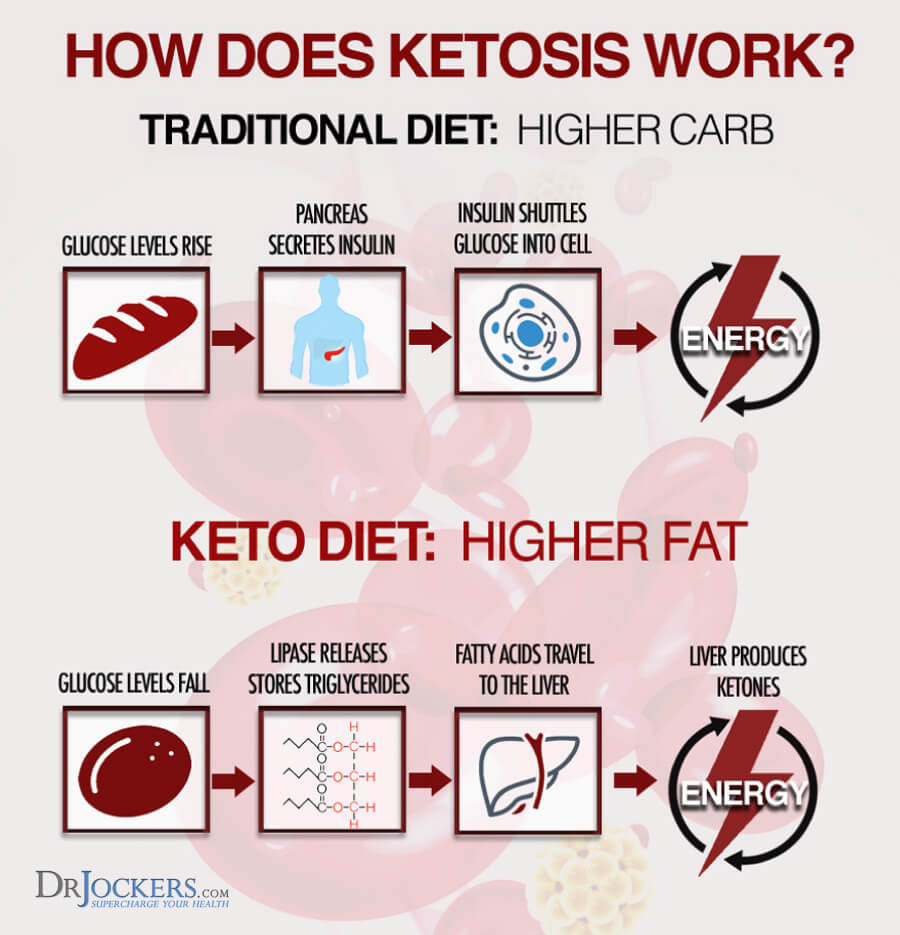
Metabolic Reset To Reduce Carb Cravings
In order to teach your body to burn fats as mentioned in the previous section, you must provide the proper stimulus. The stimulus must involve the reduction of carb intake and the increase of healthy fat intake. Once blood sugar drops enough, given that there are adequate fats in the system, the body can shift its metabolism to burning fat instead.
Most people, however, have been heavily reliant on carbs for energy their entire lives. The process of switching over to fat metabolism typically takes 2-4 weeks (or even longer). Before you go dropping all your carbs and eating a bunch of fats, you may want to consider easing your way into it by using a Keto Metabolic Makeover. This is a process I have outlined to reteach your body to burn fat.
Most people notice a massive reduction in carbohydrate cravings when they become fat adapted.
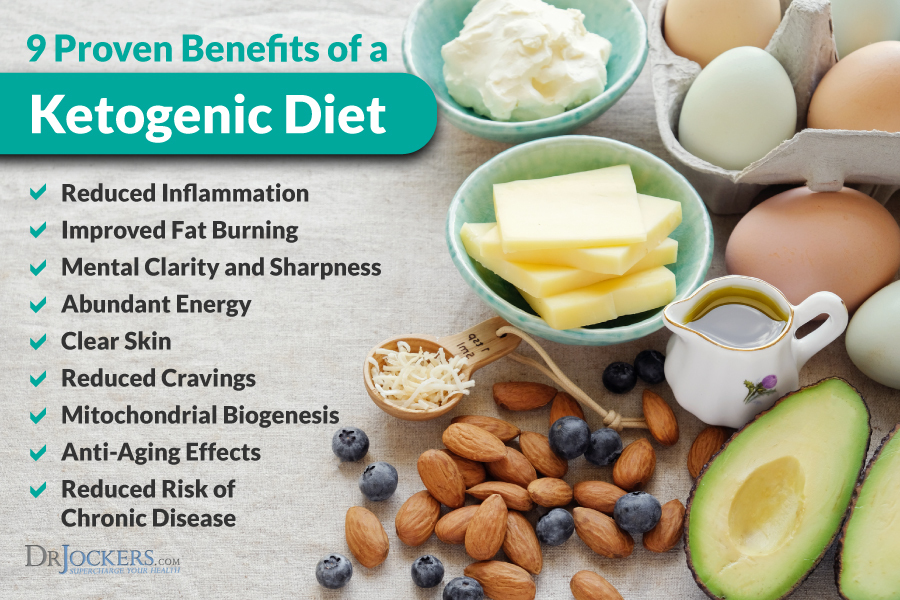
Low-Glycemic Sweeteners
Sometimes, satisfying a carb craving is as simple as tasting something sweet. Fortunately, I have developed several recipes that are ketogenic and use natural sweeteners like stevia or monk fruit that have no effect on blood sugar. In addition to not driving up blood sugar, they are full of healthy fats which helps to fill you up and support fat burning!
Some of my favorites include:
These Keto Chocolate Chip Cookies
These Chocolate Chip Keto Brownies
Or try some of these Keto Snacks to beat carb cravings!
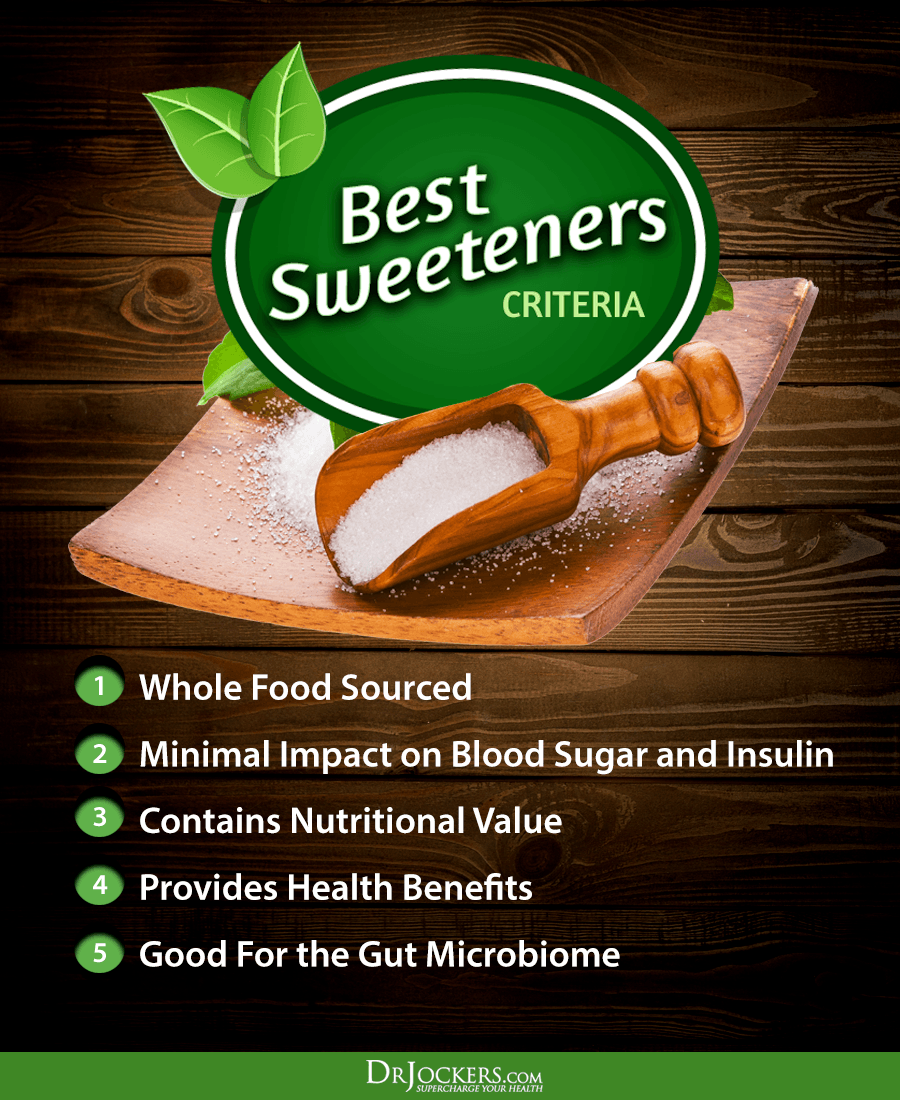
Organic Acids To Reduce Carb Cravings
Using organic acids like citric or acetic acid can help to stabilize blood sugar when used with or between meals. Two of the best sources of organic acids are lemons and apple cider vinegar. These can be used mixed with water, as a marinade, in salad dressings, or sprinkled directly over foods.
Using lemon juice or apple cider vinegar in higher carb meals can help to lower the glycemic response from the body and lower the prevalence of reactive hypoglycemia. Check out my video below for some ideas on how to use apple cider vinegar (or lemon juice) every day!
Regular Exercise Involving Large Muscle Groups
Regular exercise can be very helpful for upregulating something called GLUT-4 (6). GLUT-4 is a transport molecule that deposits glucose into muscle stores. This is helpful for keeping blood sugar stable. Exercising regularly is consequently associated with lower instances of diabetes because it helps prevent blood sugar from remaining high.
There are two other ways to utilize exercise advantageously for carb cravings:
- When you experience a carb craving, perform 5-10 minutes of exercise. This can help to mobilize liver and muscle glycogen and provide temporary relief.
- After meals, go for a light 10 minute walk to upregulate GLUT-4 and improve deposition of blood sugar into muscle tissues. This can help to minimize reactive hypoglycemia several hours after meals.
Short-duration, high-intensity interval training is one of the best ways to gain these benefits.
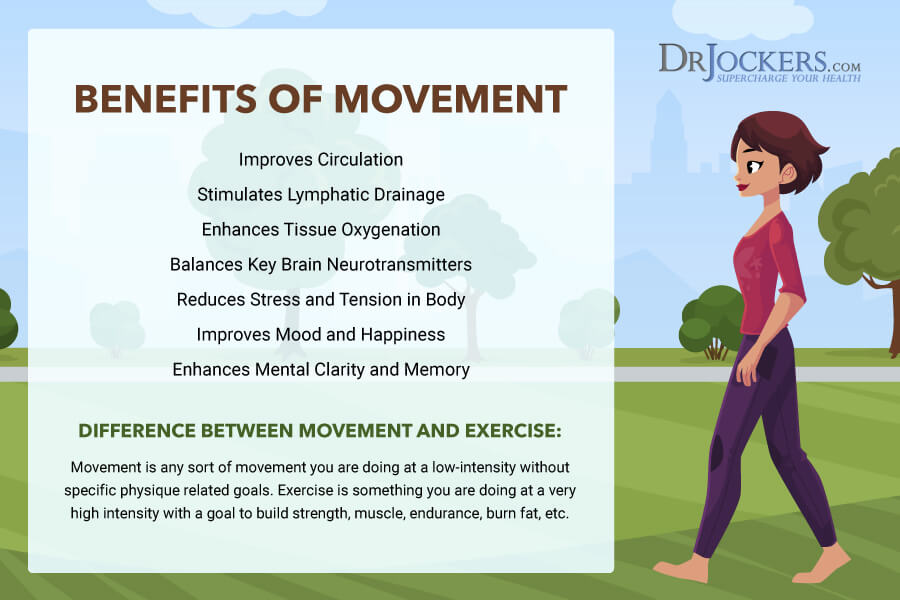
Get Good Sleep
As was discussed earlier, poor sleep is heavily correlated with poor blood sugar control. There are a number of ways to ensure you are getting good sleep. The following are KEY strategies:
- Have a consistent sleep schedule in sync with sunrise and sundown
- Get sunlight first thing in the morning and throughout the day
- Avoid artificial blue light at night time – blue light blocking glasses are great
- Have a nighttime ritual
- Consume a blood sugar balancing meal for dinner
- Avoid caffeine intake after about 2pm
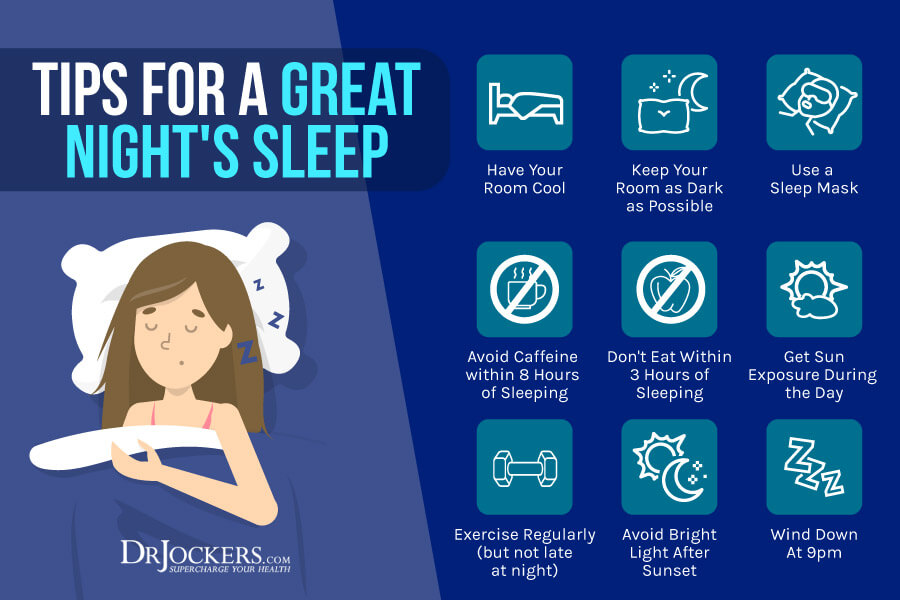
Get Sunlight To Reduce Carb Cravings
Sunlight is extremely important for the body. As discussed already, sunlight sets the circadian rhythm which is important for good sleep and blood sugar balance. In addition to this, research shows that blood sugar tends to be lower in the summer. This is potentially due to UVB light increasing insulin secretion (7, 8).
Get the Appropriate Sun Exposure For Your Skin Type:
Light skin = 15-20 minutes daily
Medium Skin = 25-30 minutes daily
Dark Skin = 40-45 minutes daily
Apply a Natural Moisturizer:
Use coconut oil, aloe vera and/or green tea extract as a moisturizer before and after sun exposure for added anti-oxidant protection
Supplemental Vitamin D:
If adequate sunlight is not available or attainable than supplement with 5,000-10,000 IU of vitamin D3 daily.
I recommend aiming for 1,000 IU per 25 lbs of body weight, so a 150 lb individual would aim for 5,000-6,000 IU. It is possible to get around 1,000 IU daily from food if you eat grass-fed butter, pasture-raised eggs, organic meats or Cod Liver oil.
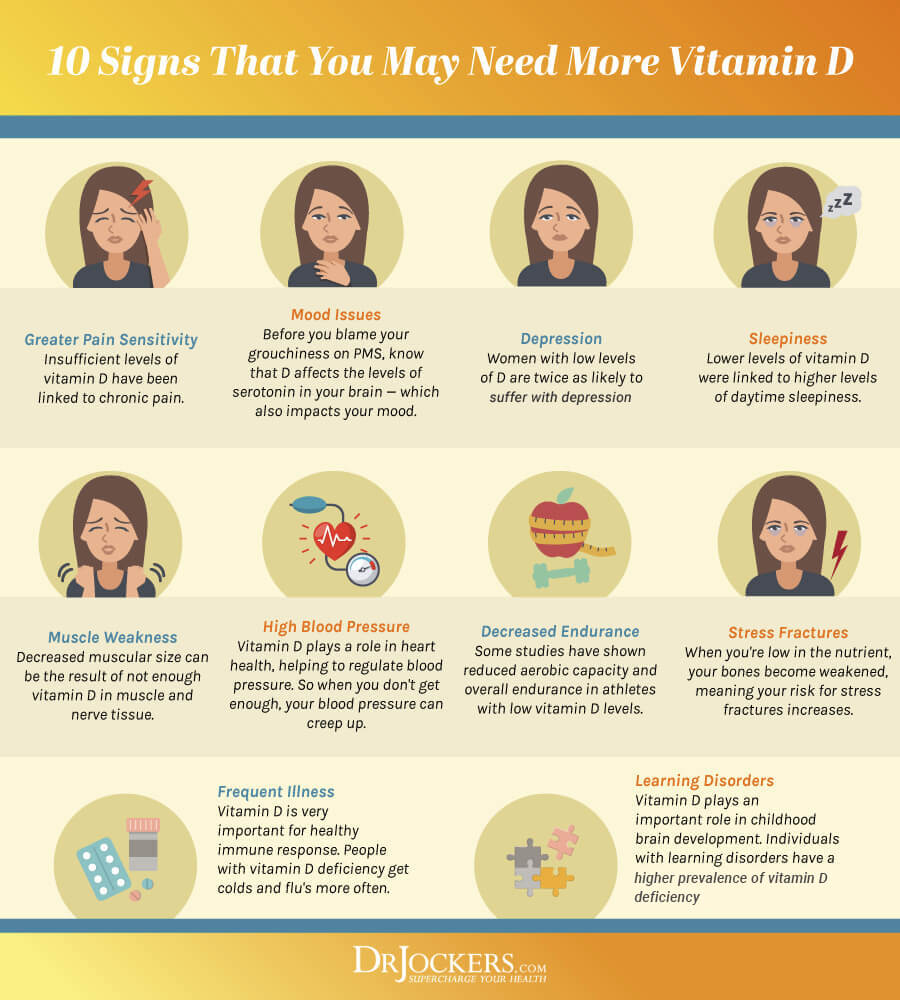
Water & Electrolytes To Reduce Carb Cravings
As discussed earlier, hydration is vital for proper blood sugar regulation. A solid guideline to shoot for on a daily basis is at least half of your body weight in ounces of water per day. This is based on your bodyweight in lbs. For example, a 160lb individual should drink a minimum of 80 ounces of water in a day.
Ideally, you would try and shoot for your entire bodyweight in ounces. A great way to do this is engaging in super hydration first thing in the morning. Drink anywhere from 16 ounces all the way up to a gallon of water before consuming your first meal in the morning. Also, consuming adequate salts will ensure electrolyte balance is maintained.

Fat Fasting
Fat fasting is a powerful way to beat carb cravings. This is where you consume healthy fats while strictly limiting carbs and protein intake. This supports a state of ketosis which will naturally stabilize blood sugar and cut the need for carbs.
One great way to do this would be to consume something like this Turmeric Fat Burning Coffee in the morning. Caffeine also has a ketone-boosting effect which synergizes with the fats present in the coffee. The turmeric also has blood sugar stabilizing benefits so you can’t go wrong! You could also try a keto matcha green tea or this dandelion caffeine free coffee for similar results.
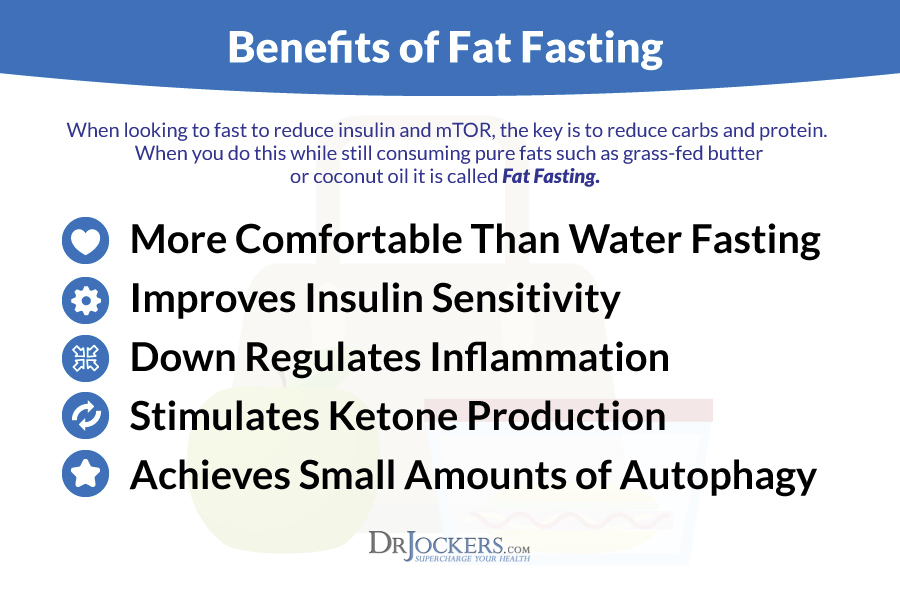
Use MCT and SCT Oils to Reduce Carb Cravings
MCT and SCT stand for medium chain triglyceride and short chain triglyceride, respectively. These fats are purified from coconut oil (MCT) and grass-fed butter (SCT). Each of these are extremely easy to digest and help with the formation of ketones which will drastically cut carb cravings.
I put our 1 tsp of our Keto Brain C8 MCT oil in a smoothie on most days and I will often take 1 tsp on whatever I am having for dinner to keep ketones in my system and get the reduced craving benefit, so I don’t have a desire for something sweet after dinner!
If you don’t have any MCT oil, using grass-fed butter and/or coconut oil can be helpful. They just don’t turn into ketones quickly because they also contain a lot of long chain fats that aren’t as ketogenic. The more ketones you have present in your system, the less likely you will have strong cravings, so it is a helpful strategy.
Use Chromium After Meals
Chromium is a trace mineral that has insulin-like effects in the body. Using chromium after meals can help to ensure glucose is shuttled into cells where it is needed.
A good dose to experiment with would be about 1000 mcg used at the end of meals. I recommend Insulin Manager because it features this dose along with things like bitter gourd, fenugreek, and gymnema which all synergize for proper blood glucose management. This is a strong supplement, so if you don’t have issues with pre-diabetes or diabetes than I would not recommend using it but instead doing our High Energy Support multi-vitamin.
With the Insulin Manager, try taking 1-2 caps with meals. If you take this and notice your blood sugar drops too low and you feel hypoglycemic, try cutting the dosage in half and see how you feel. You can also use our High Energy Support multi-vitamin which has chromium, vanadium and activated B vitamins and supports blood sugar levels in a well-tolerated manner.
Test For Gut Infections
If you are experiencing a lot of digestive issues along with your carb cravings, you may want to consider testing for infections or dysbiosis in the gut. Something like candida overgrowth can strongly contribute to cravings in addition to damaging the gut and inflaming the body.
One of the best labs for observing the current state of the gut is the GI MAP. The GI MAP looks at both beneficial and infectious bacteria, parasites, autoimmune specific infections, in addition to markers of inflammation within the gut.
Sip on Some Bone Broth
Something that many people find satisfying is simply sipping on some warm bone broth. Bone broth provides minerals, amino acids, and glutamine. Many people report that glutamine helps tremendously with carb cravings.
Bone broth also contains a significant amount of the amino acid glycine which actually regulate gluconeogenesis, the process in which the liver produces sugar from amino acids. I really like the Kettle and Fire pre-maid bone broth that you can find here.


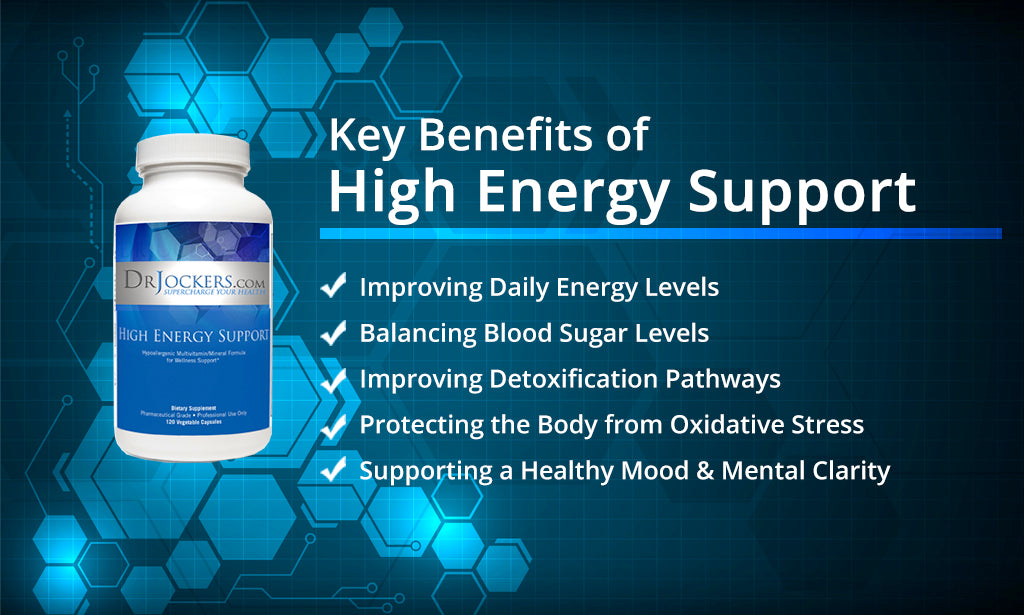





When I have a “carb craving” I solve the problem very easily: eat a bowl of pasta or rice or a bread roll or a baked potato or any other carbohydrate my body is asking for and guess what happens after that ? I no longer have a “carb craving”. Seriously people if you really believe this article you have fallen for gimmekry.
You have obviously not tried any of his methods. Try before you knock it.
Annalisse, that’s great if that is what works for you. But for those of us who eat carbs then feel like we’ve been hit with a Mac truck, we need articles like this. Carbs drag me WAY down and make me feel horrible. And I crave them even after eating them. A baked potato isn’t enough for me. I will eat them for days and nothing else. Then I will feel horrible. I LOVE this article and I have noticed when I don’t eat breads, potatoes, etc, I feel better. But haven’t been able to overcome the cravings. This helps alot!
Hey Annalisse! Thanks for sharing. The people my coaches and I work with on a regular basis would not see benefit in consuming these carb sources as they are both grain-derived and high-glycemic which is not something that someone with chronic blood sugar imbalance should consume. This often ends up in reactive hypoglycemia as described in the article. Thanks for reading!
Yes, because telling people to eat more veggies, get some exercise, or get checked for candida or bacterial overgrowth, or to get outside more or to check their vitamin D status or to work on better sleep habits – it’s all SO gimmicky! They should just tough it out and continue to fight the uphill battle against blood sugar and insulin imbalances in their body. I mean it’s all in their head right, Annalisse?
#healthcarefail #sarcasm #havesomecompassion #openyourmind
Why come to spread hate or ignorance (paid shill?)? When I follow your diet (religion) I get inflamed skin, joints, and other issues. Carbs are cancer for me. Cyclical Keto has kept me from needing drug dealers (conventional doctors).
Hey Jon, That is great to hear! I am so happy that you are receiving benefits from a cyclical ketogenic diet! Blessings to you!
Pasta and rice etc raise your blood sugar, dah! You must be on a blood sugar roller coaster!
Guess what your rice baked potato bread roll are all carbohydrates honey I wonder why you don’t have any more car cravings if you listen to what he says and do the research you find out he’s not talking about
Thanks for all the great info on Keto and how our bodies work. I appreciate all your hard work
Thanks for reading Nancy!!
I have tried following a keto lifestyle but haven’t been as dedicated as I probably should have been. I dealt with cravings by trying a number of keto dessert recipes. In my estimation, this was more of a problem than a solution. When I eat even these desserts, that still have that sweet taste to them from the alternative sweeteners they include, I just end up craving sweet tastes even more. Any suggestions to dealing with this, Dr. Jockers, before I even get re-dedicated to following keto better would be greatly appreciated.
Thank you.
Hey Penny, yes probably best to avoid sweet foods for a few weeks to reset your taste buds! Be Blessed!
I was on a keto diet for a year to resolve cancer issues which it did. I was advised to take magnesium which I gradually gave up. I was also low on sugar. I now have carb cravings and my sugar levels have shot up. This article helped me understand why. Thanks for that. Shall resolve to do better now with several tips here that I found of value.
Yes magnesium is super important!
Dr, Jockers,
In your article above, you mention that chromium, magnesium, and B vitamin deficiencies are a possibility in many people.
Would your High Energy Support multi vitamin address these deficiencies?
What is the best all-around supplement or multi-vitamin you would recommend for folks to take when following a ketogenic or low-carb diet? It’s not always possible for me to eat the correct balance of foods to get the proper amounts vitamins and minerals.
Thanks so much! Great article!
Kay
Hey Kay, yes I would recommend adding in the High Energy Support multi, which has clinically effective doses of these nutrients. Be Blessed!
Good morning,
Where do I purchase the High Energy Support multi? I would like to get this for myself and my husband. Thank you.
Here it is Cindy and please use the coupon code Jockers10 at checkout to save 10% on your orders. https://store.drjockers.com/products/high-energy-support
Thanks. The article is very helpful. I would like food suggestions.
Yes Carolyn, here are some great foods to stick with: https://drjockers.com/top-12-foods-balance-blood-sugar-levels/
great article, all important supplements and lifestyle changes to incorporate…. and another thing to consider is the unconscious mind… i also do the Emotion Code Energy Healing to released trapped emotions causing cravings for carbs, sugar, junk foods etc… as well as using hypnosis, getting to the unconscious mind to build healthy habits, good food choices, and motivation to exercise! 🙂
Great to hear Lynn! Thanks for sharing!
Hi Dr. Jockers,
Thanks for all your great material and sometimes sharing your precious family with us. I have the MTHFR gene mutation A1298C. Would your High Energy support Multi work for me? I also seem to have never had stable blood sugar in my life. My parents let us eat what we wanted; I went to sugar and thus “blood-ose” runs through my veins and my sister turned to salt. Any help for a former sugar-aholic, who rarely has it now? I eat pretty excellently clean only gf grains, veggies & fruit, no dairy, low sugar and pasture fed beef. Could use any help to get past anxiety and brain issues. Thanks so much!
Mae
Sorry to hear this Mae! I would highly recommend the High Energy Support Multi-vitamin and our Brain Calm Magnesium here: https://store.drjockers.com/collections/top-sellers/products/brain-calm-magnesium
Great article, Dr. Jockers. I don’t have carb cravings or sugar cravings, but if I did this article is where I’d start to resolve them! Do you make a vitamin D supplement? It’s rained so much the last few months I’m as white as a dead fish. I have Winter Sun vitamin D drops but I’d like to find something locally, maybe less expensive.
I love Stevia in herbal tea. I read that it kills the Lyme spirochete better than antibiotics, and I think it may be true since antibiotics do more harm than good most of the time, killing good bacteria in the gut along with the bad. I never had a sweet tooth, but some teas need a little something to taste better.
Love the “drool” in your graphic of the girl craving carbs, ha ha! Funny.
Thanks for sharing Nora! Yes here is a great vitamin D supplement with vitamin K2 added for optimal balance. https://store.drjockers.com/products/d3-k2-power
Thanks, I checked it out, but it has microcrystaline cellulose in it, like a lot of supplements.
That’s why I got liquid drops–they don’t have it, but they don’t have K2 so I take a separate tab.
We also have this liquid D3/K2 https://store.drjockers.com/products/vitamin-d-k2-liquid
Thank you for all you wealth of information. I am struggling with terrible carb cravings that lead to binges nearly every day. I attempted a ketogenic diet in the past but was unsuccessful in ever achieving ketosis. I have years of disordered eating but no one seems to be able to help. Would I be unwise to try a ketogenic diet again given how much damage I have likely done to my metabolism? Thanks for your help and many blessings.
So sorry to hear about this Jennifer! I would recommend working with a functional health coach to figure out the root cause of these carb cravings. Here is a helpful article: https://drjockers.com/functional-nutrition-tips-to-find-a-great-health-coach/
In addition to Dr. Jocker’s advice, you may also find this interesting. I am also a food addict having developed the compulsion of emotional eating as a child. Working with a functional practitioner, as Dr. Jockers suggests, will help you rebuild your microbiome & release you from the physical addiction to foods, and, using EMDR or essential oils etc, to release the emotional precursors to emotional eating will hopefully provide you with the complete solution to your cravings that you are hoping for… https://www.wilddigital.co.uk/the-ultimate-cause-of-all-illness/
A defect in Fatty acid oxidation would lower your body’s ability to make ketones naturally.I have not read one article on any website addressing this issue-and how would one deal with it??How do you deal with a mutation such as this??would a redox dysregulation mess up body’s ketone production??-Thanksalot for a reply-J.L.(vinny152@yahoo.com)
Hey Josephine, Yes a few things that help are taking mitochondrial support supplements with L-carnitine and CoQ10 such as our Mito Support. Also, doing MCT oil which turns immediately into ketones and doesn’t need a Carnitine carrier to get into the mitochondria and is easily used as fuel.
Thank you Dr. Jockers for all the good information. My question is about Magnesium. I have a cupboard full of all sorts of Magnesium supplements, some inexpensive, some very costly. They all cause stomach upset and eventually diarrhea. I know I need Magnesium, I just can’t get it in supplements. I also take Epson salts baths, but again, cant do this very often or long because of the side effects. Any Help? thanks
Hey Clarise, This article can help you understand the different types of magnesium supplements and which ones to take. I would recommend reading this list of magnesium rich foods to supplement your diet.
Thanks very much for this enlightening article. I have linked to it from my article on weight gain and resistant weight loss: https://www.wilddigital.co.uk/weight-gain-resistant-weight-loss/ In this article I touch upon childhood addiction to carbs owing to EMF exposure. My understanding is that the myelin sheath isn’t fully formed until adulthood, leaving children feeling raw and irradiated by wireless technologies, and that they are eating carbs as it offers some protection. I would love for you to add to my understanding if you have the time. Thanks.
Hey Rachel, Thank you for sharing. That is an interesting perspective on the matter!
To curb sugar/alcohol cravings: put L-glutamine powder (buy on amazon) under your tongue and let melt. It works on my sugar cravings caused by oral Candida. I learned this from a functional medicine doctor in an online webinar. I have cut out table sugar, alcohol, soft drinks, grains, dairy, candy, anything sugar. I eat organic Paleo diet (using Paleo flours and erythritol and stevia sweeteners). I have failed in the past, several times, doing the Candida Diet and herbs, due to sugar cravings. Not anymore. I still eat sweet tasting foods, but no real sugar.
Great to hear that Yvonne! Thanks for sharing!
Hi Dr Jockers,
Thank you so much for your articles and information.
So helpful and I appreciate your generosity and time shared to assist us on our journey.
From The Land DownUnder.
Thanks for all your support Kerry! Blessings to you!
It’s ‘pre-made,’ not ‘pre-maid.’ (?)
I don’t have a gallbladder, would the Ketogenic diet not be a good thing
because of all the fat I would have to digest with No gallbladder?
Thanks
Hello Eva,
Yes, I recommend a high protein diet and strategies here: https://drjockers.com/no-gallbladder-strategies/
What is your opinion of Bocha Sweet? I recently discovered it in a European recipe I found on line. I did some research and found it has been around for centuries in Japan, is plant derived from the kabocha squash, and has no impact on blood sugar. I ordered some and gave it a try. It is the closest to sugar and has no after taste, like Stevia and Monk Fruit. I haven’t found any negatives about it, but would love your input. Thanks!
Yes this is a good thing to use Carol!